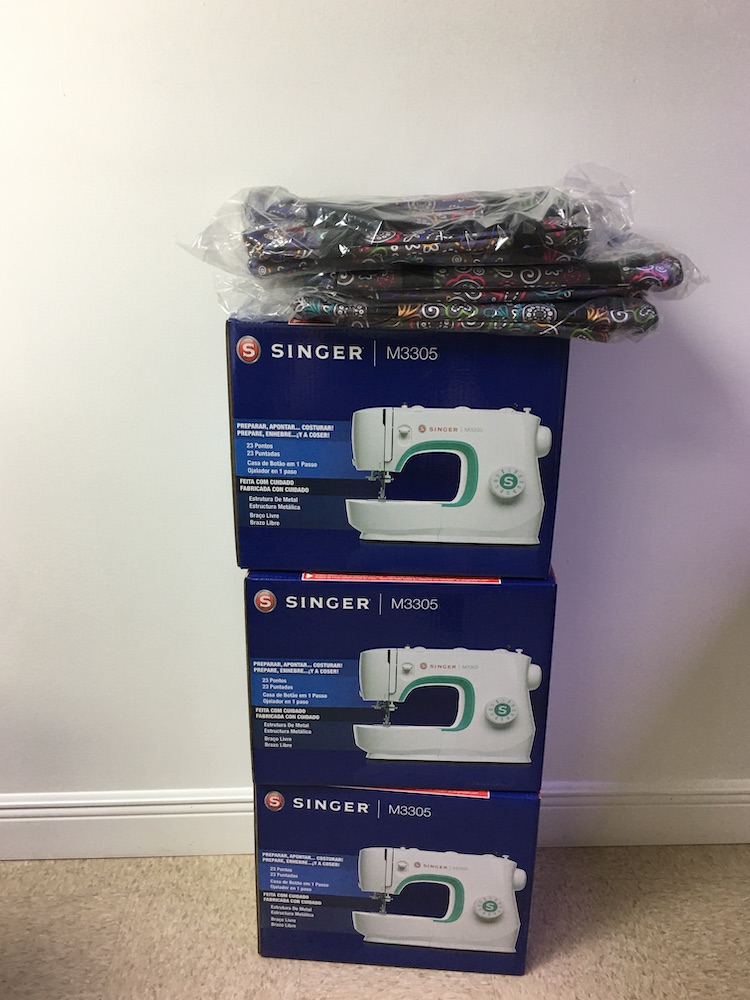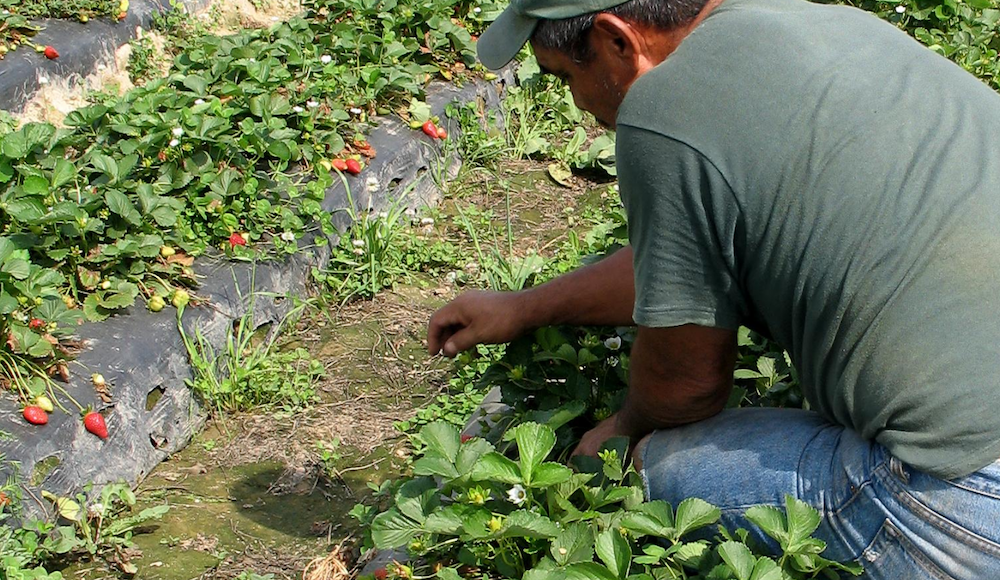HOMESTEAD— Cramped living conditions, backbreaking hours packaging vegetables and fruits in enclosed areas and lack of personal protective gear have the placed the South Florida migrant community at high risk of a COVID-19 outbreak.
Farmworkers travel to the fields in crowded buses, start work before sunrise, and often labor in fields until sundown. Multiple families live together unable to quarantine should anyone become infected by the coronavirus.
Given their dire circumstances, Michael Daily, director of church and community ministries for the Miami Baptist Association is leading the association’s Good News Care Center to bring much-needed assistance to the migrant camps in South Dade, Redlands and Everglades. He is partnering with Youth for Christ, and several community migrant groups, including Branches and Title 1 Migrant Education Program
Working hand in hand, Beatriz Vidales, Title 1 community program coordinator, identifies extreme needs among the migrant families and then shares the information with the Good News Clinic staff. Other urgent needs are detected when they come to the clinic for health care.
The Good News center will then help with pressing bills, provide grocery store gift cards between $150-$300 depending on family size and assist the migrant camps develop a mask sewing project.
“No work means no pay,” Daily said. “How do they keep their lights on and get food? One young woman was left alone after her husband was arrested for domestic abuse and will be deported. Her husband let the bills go. So, the clinic paid to keep her lights on and food in the fridge.”
Added to their despair, because most of Miami-Dade’s farmworkers are immigrants, they also tend to keep a low profile to avoid “anti-immigrant sentiment,” Patria Rojas, a public health expert at Florida International University, told the Miami Herald.
“When COVID-19 hit, I was contacted about the extreme need for masks for the migrant workers,” Daily said. “They had no masks as they went out into the fields and even when they got sick, they continued to go into work.”
 Even though the Good News Clinic donated 500 masks, it was a short-term solution because the paper masks cannot be reused. Having previously organized a sewing project with a local church, Daily suggested the same project be employed in the camps to sew masks.
Even though the Good News Clinic donated 500 masks, it was a short-term solution because the paper masks cannot be reused. Having previously organized a sewing project with a local church, Daily suggested the same project be employed in the camps to sew masks.
“Some of the funds from the Title One Migrant Education Program were used to purchase some sewing machines,” said Daily. He found a store that sold sewing machines, then enlisted three seamstresses to teach the migrants to how to sew, so that they could make masks, repair clothing and make alterations.
“The crops do not care that there is a virus happening. The beans are going to happen whether COVID is here or not,” said Johanna Ralsten-Cox, ministry director of Youth for Christ. “Not all work in the fields, some work in restaurants and at Walmart. Their hours have been cut or the business closed and while they are not being evicted, the landlords are still demanding full rent from them.”
In addition to supplying to the physical needs of the migrant workers, the Good News clinic is living up to its name by sharing the good news of the Gospel with each and every migrant patient by following up after their visits.
According to migrant chaplain Moises Robaina, who also serves as pastor of Iglesia Bautista Mi Ebenezer, between eight and nine people have received Christ per week since March. Before the pandemic, Robaina visited migrants in their homes and prayed with them. Now, he calls them up and prays with them over the phone. On Sundays, when his church meets while following social distancing guidelines, Robaina sends migrant families home with food and a Gospel message.

